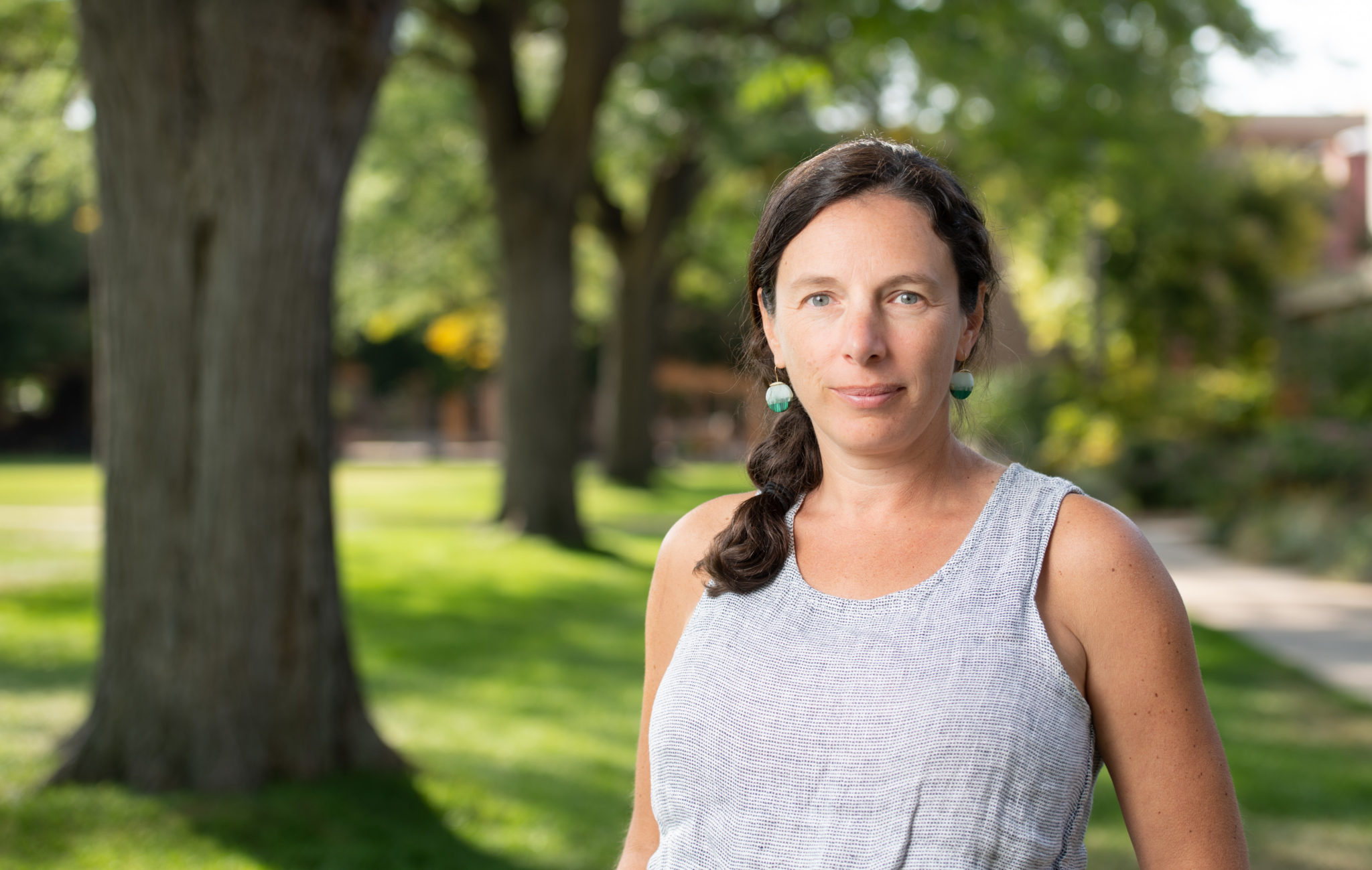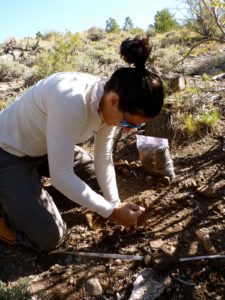
Jane Zelikova’s path to becoming a soil scientist began early.
“I loved playing in the dirt,” Zelikova said. “I just ran around outside all day climbing trees and digging up worms.”
As the new executive director for Colorado State University’s Soil Carbon Solutions Center, Zelikova still gets to play in the “dirt,” just on a much larger scale.
With a background in ecology, climate change research and soil carbon science, Zelikova has approached the problem of climate change in a multitude of ways. That includes everything from activism and filmmaking to research and policy — most recently as chief scientist with the nonprofit Carbon180.
Telling the story of soil
For Zelikova, addressing climate change is about more than just the science. It’s also important to tell stories that resonate with people, she said. That’s why she founded Hey Girl Productions, making several films focused on climate change, including “The End of Snow.”
“I think that has a lot of power,” she said. “Telling the story of why soils matter, how they can help us think about climate change, resilience and mitigation, and connecting people to those stories in ways that really resonate for them, and providing a little bit of hope in what can often feel like a really grim situation.”
While soil may not seem like the most dramatic film role, Zelikova said that it really needs to step into the spotlight.
“It’s literally the ground we walk on, we build on, we sleep on,” Zelikova said. “It’s the source of almost every kind of item you have in your house — from the table that this computer is sitting on to the chair I’m sitting on to the floor. It’s the substrate in which we grow most of our food … It’s very necessary, and it’s very unappreciated.”
Soil carbon science gets a new home
CSU professor and head of the Department of Soil and Crop Sciences Matthew Wallenstein couldn’t agree more.
The University has been a pioneer in soil science for decades, Wallenstein said, going back to when its researchers developed some of the first computational models to incorporate our understanding of how soils are formed and plant organic matter is processed.
With support from CSU’s Office of the Vice President for Research and spearheaded by CSU Professors Francesca Cotrufo and Keith Paustian, the Soil Carbon Solutions Center is now a reality. The organization elevates this important area of research, engagement and innovation by bringing together researchers from across campus.
“We are at a unique moment when our decades of research on soil science are suddenly called upon to address the urgent problem of climate change,” he said. “Although agriculture is an important contributor to global greenhouse gas emissions, it’s probably our best near-term opportunity to slow down climate change — and even start drawing down carbon — and at the same time, help make agriculture more economically and environmentally sustainable.”
The idea for the center emerged from an exploration with CSU’s Energy Institute. This focused the team on tapping into the power of entrepreneurship, industry partnerships and “customer discovery” to accelerate the adoption of soil carbon solutions at the scale needed to have global impact.
“When we joined up, we knew that this was a wicked problem that required bringing together many disciplines,” Wallenstein said. “We knew that it isn’t enough to just get the science right.”

It meant getting buy-in from farmers to adopt new, potentially more sustainable practices. That meant understanding the barriers to adopting those practices and technologies.
“That required us to reach out to our colleagues with expertise in economics and social science,” Wallenstein said. “And even that’s not enough because putting together an interdisciplinary team is valuable, but if you’re not fostering a conversation among diverse stakeholders then you’re not putting science into action.”
That’s why there needed to be a center that could serve as the central facilitator, he said. And it’s why that center needed to be helmed by someone who could foster those conversations with cutting-edge science.
“Pulling carbon out of the atmosphere and storing it in the Earth’s soil has so many co-benefits, but building the partnerships required to get solutions to scale requires speaking the language of farmers, governments and the business community,” said Bryan Willson, executive director of CSU’s Energy Institute. “Jane’s ability to articulate the importance of soil carbon along with her passion and broad background make her a phenomenal choice to lead the Soil Carbon Solutions Center.”
Finding a rare skillset
When they began the search for the new executive director, Wallenstein said that they knew it was going to be a tall order.
The ideal candidate needed a rare set of skills and experience that combined not only a solid scientific background in soil carbon, but also a working knowledge of the agricultural industry and how it views soil carbon.
“There’s a lot of recently emerging efforts among the agricultural companies to engage in soil carbon markets in one way or another,” he said. “There’s also a lot of interest from NGOs and a lot of policy action related to this work.”
Zelikova’s background — both as an American Association for the Advancement of Science fellow in the Department of Energy’s Office of Fossil Energy and Carbon Management and working for nonprofits Carbon180 and CarbonPlan and with the advising firm Carbon Direct -— hit all requirements.
“We didn’t expect to find someone with all of those skills, but we were so fortunate because Jane is that rare bird that has all that diverse experience and deep scientific knowledge,” Wallenstein said. “She knows how Washington, D.C. works, she knows how academia works, and she knows how the industry works.”
First goal: Helping to change the world
Although she’s just begun in her role, Zelikova said she plans to hit the ground running.
“The center is a really unique opportunity to harness what is unprecedented expertise,” she said. “CSU is world renowned in soil expertise and research, along with other leading departments across the university — be that engineering, economics, energy systems, social science, behavioral science, extension — to bring all of these disciplines together to create solutions that can help change the world.”
That could mean developing new technologies or techniques, Zelikova said. It could also mean bringing social science and soil science together to create solutions that better resonate with people.
Most importantly, she said, the goal is to create solutions that will actually be used and used as quickly as possible.